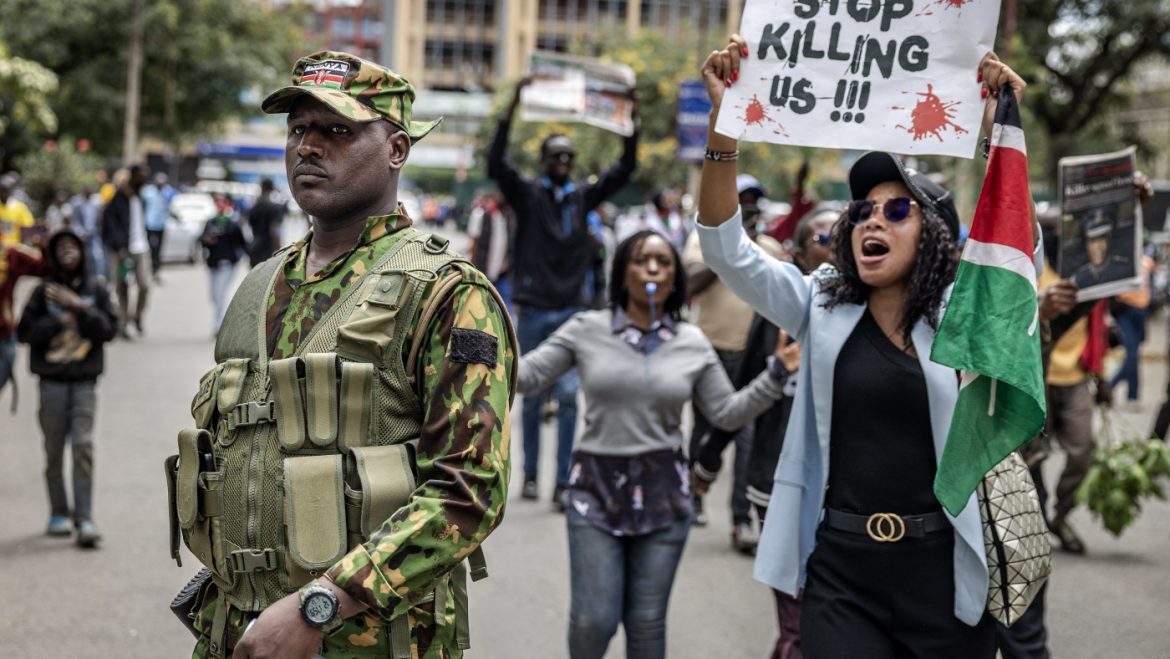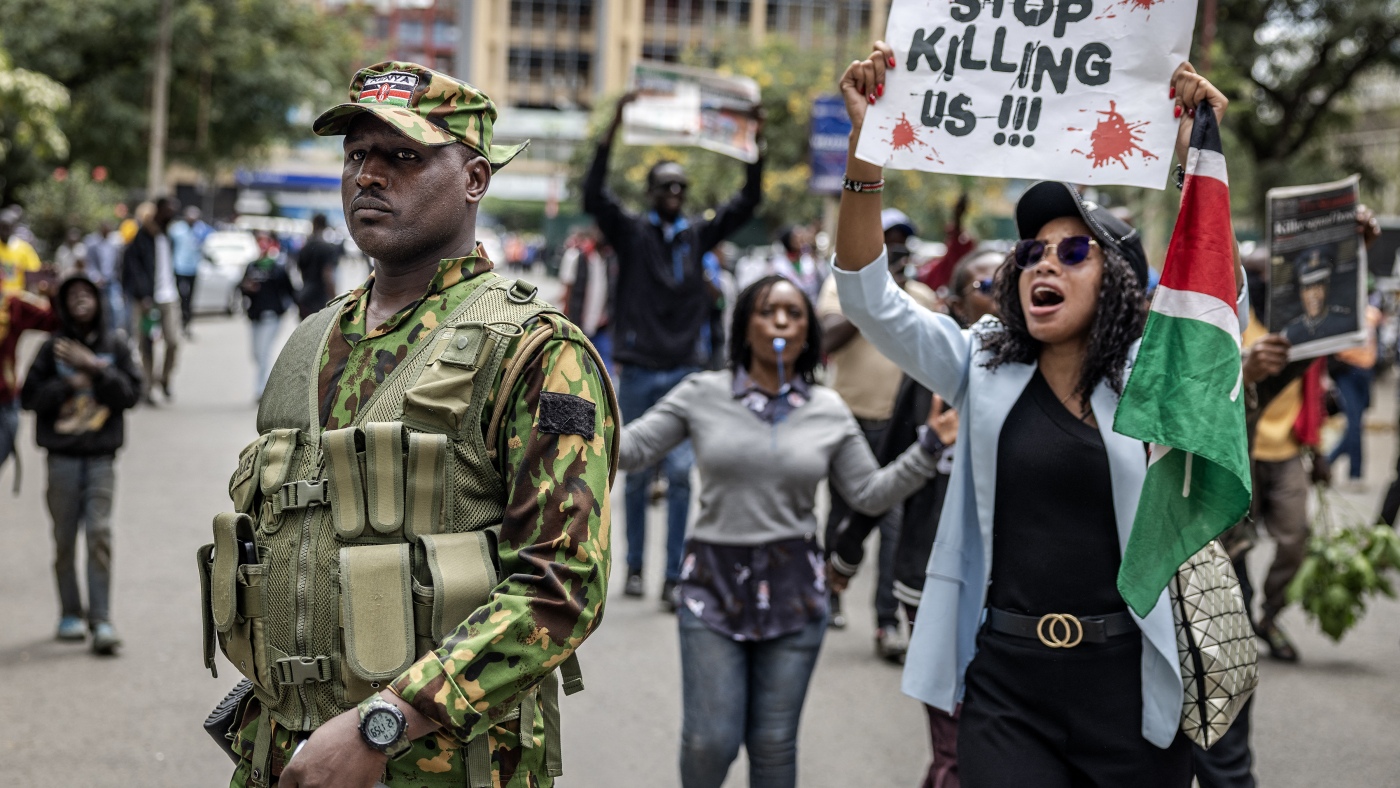The Death of Albert Ojwang: A Flashpoint of Police Brutality and Public Outrage in Kenya
==========================================================================================
An Unfolding Tragedy
——————–
Kenya is grappling with a profound crisis following the death of Albert Ojwang, a 31-year-old blogger and activist, while in police custody. His arrest, alleged to have been sparked by accusations of publishing “false information” about senior police officials, culminated in his death under suspicious circumstances. The incident has ignited widespread protests across Nairobi and other parts of the country, unveiling deep-rooted tensions surrounding police conduct and human rights violations.
Albert Ojwang’s case has become a symbol of growing public frustration with law enforcement agencies perceived to be operating with impunity. The circumstances of his arrest and subsequent death have cast a spotlight on systemic issues within Kenya’s police force, magnifying the nation’s ongoing struggle with brutality and lack of accountability.
Context and Details Surrounding the Incident
———————————————
Ojwang was initially arrested on June 6 in Homa Bay, western Kenya, and was transported approximately 400 kilometers to Nairobi for interrogation. Police claimed his detention was linked to defamation allegations filed by the Deputy Inspector General of Police, Eliud Lagat. Shortly after his transfer, Ojwang was pronounced dead. Initial police statements suggested his death resulted from self-inflicted causes within the prison cell.
However, this official narrative has been strongly contested. Autopsy reports and medical examinations contradicted police claims, pointing towards foul play rather than natural or self-inflicted death. This discrepancy has fueled suspicions of cover-ups and deliberate misinformation by authorities. Moreover, President William Ruto’s remarks contradicted initial police explanations, further amplifying public doubts and skepticism about the integrity of the investigation.
The Nature and Spread of Protests
———————————
Following Ojwang’s death, mass protests erupted in Nairobi’s Central Business District, particularly near the Central Police Station where he died. Demonstrators, many clad in black and waving placards demanding justice, mobilized swiftly across the capital, echoing sentiments of anger and grief not just over Ojwang’s death but over the broader issue of police brutality.
Protestors accused the police of systemic violence and a culture of impunity that has led to numerous deaths in custody. Public outrage has also been intensified by revelations from a police watchdog reporting more than 20 custody deaths over the preceding four months alone. Security forces responded to these demonstrations with tear gas and other crowd control measures, resulting in clashes that further escalated tensions.
Impact on the National Mood and Political Climate
————————————————-
The tragic death of Ojwang has reopened wounds stemming from previous episodes of state violence, notably last year’s crackdown on anti-tax protests which led to fatalities and mass unrest. Kenya’s society remains deeply scarred by these events, and the latest incident risks reigniting long-simmering conflict between citizens and law enforcement.
Political leaders and members of parliament have now been compelled to confront the police on these issues. In parliamentary hearings, police officials were grilled regarding the circumstances of Ojwang’s death and the larger pattern of deaths in custody. The police chief, Douglas Kanja, publicly apologized for misleading the public initially, an acknowledgment indicating institutional failures and raising questions on transparency.
Legal Proceedings and Accountability
————————————
Following the protests and public outcry, one police officer on duty during Ojwang’s detention was arrested and charged with murder. However, two others remain at large, highlighting challenges in ensuring comprehensive accountability within security services.
Observers note that the arrest is a critical step towards justice but worry about the slow pace of reforms within the police force and the risk of this becoming yet another isolated case. Activists demand systemic changes, including better oversight mechanisms, respect for human rights, fair treatment of detainees, and an end to extrajudicial killings.
Broader Implications: A Regional and Generational Lens
—————————————————–
Ojwang’s death and the ensuing protests reflect a broader regional challenge faced by many East African states where youth-led protests are increasingly met with governmental crackdowns. The younger generation, digitally connected and politically aware, uses platforms like blogging and social media to express dissent and mobilize for change.
Authorities appear to be intensifying efforts to suppress such voices, with Ojwang’s case symbolizing a crackdown on freedom of expression and an effort to silence critics. This phenomenon is not isolated to Kenya but resonates throughout the region, raising concerns about the future of civil liberties and political freedoms.
An Urgent Call for Justice and Reform
————————————
The tragic demise of Albert Ojwang has struck a chord across Kenya, uniting many in demands for justice and systemic reform. The combination of suspicious circumstances, contradictory official accounts, and a pattern of police brutality underscores the urgent need for accountability and transparency within the country’s law enforcement institutions.
The protests signify more than just grief—they are a cry against an enduring culture of impunity. Kenya stands at a critical juncture where addressing these systemic problems is essential to restore public trust and prevent further civil unrest.
To build a future where dissent is not met with violence, and justice is not deferred, Kenyan authorities face pressure not only to resolve this case transparently but also to reconsider policing practices and ensure that fundamental human rights are upheld uncompromisingly across the nation.


